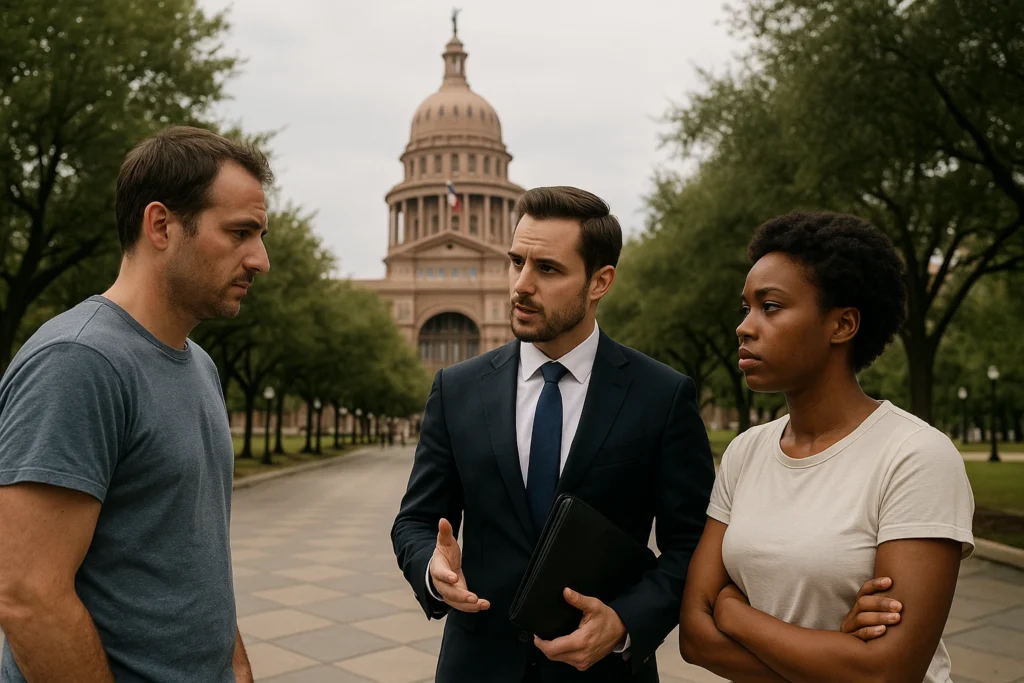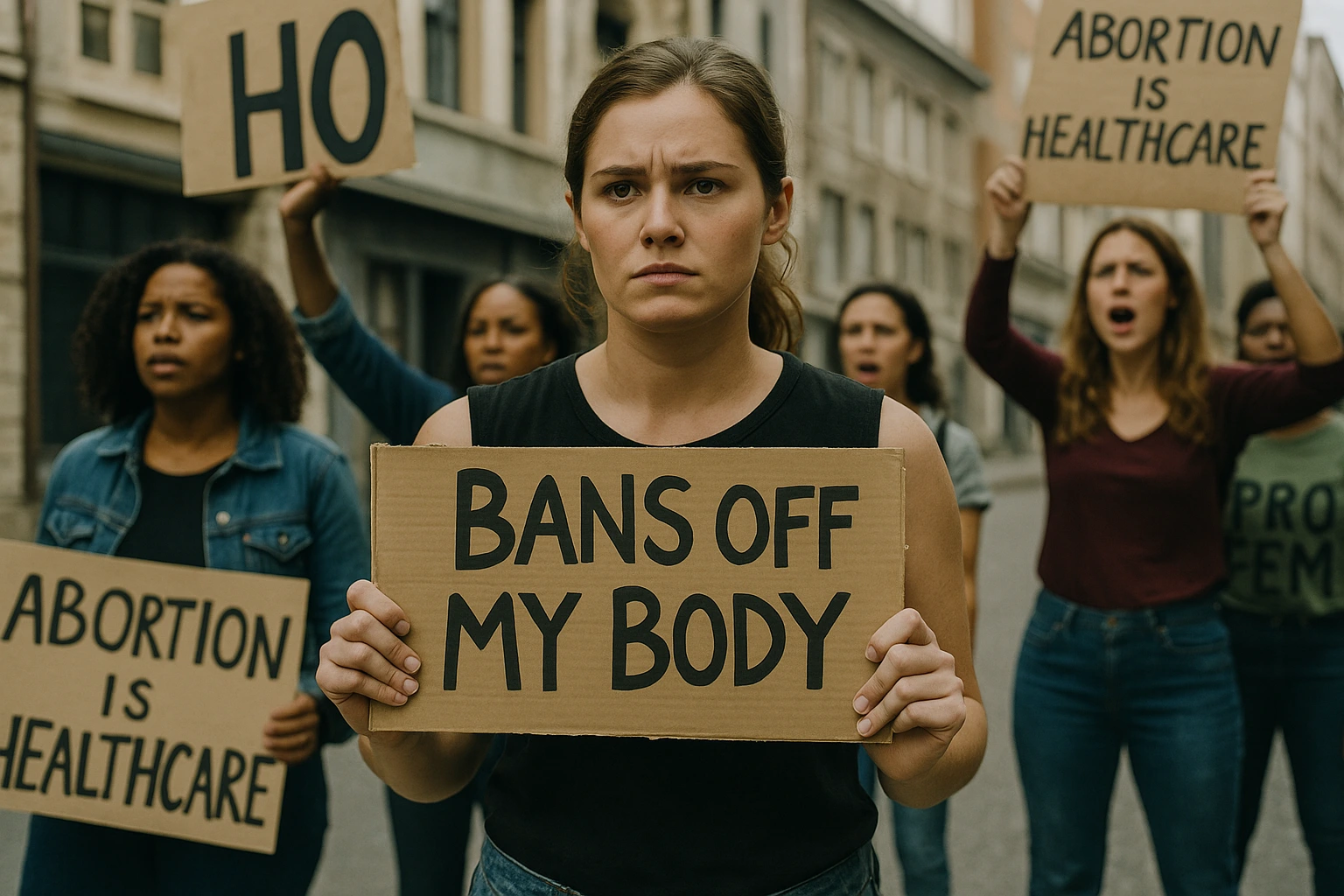
Texas Senate Bill 8 didn’t just impose stricter abortion restrictions; it introduced a unique legal strategy that allows private citizens to sue anyone who aids in obtaining an abortion after a heartbeat is detected. This approach disrupted the legal system, sparking debates over state power and individual rights. SB 8 and its implications extend beyond Texas, influencing how other states craft their laws and shaping how courts handle challenges to such measures.
What SB 8 Actually Says
SB 8 prohibits abortions once a fetal heartbeat is detected. That usually occurs around six weeks into pregnancy, often before many people realize they are pregnant. The law does not make exceptions for pregnancies resulting from rape or incest. Only medical emergencies qualify as exceptions.
The law also introduces a new method of enforcement. Instead of state officials handling violations, SB 8 allows private individuals to sue anyone who performs or aids in an abortion that violates the act. This includes doctors, nurses, clinic staff, and even rideshare drivers or family members who assist in transporting someone to a clinic.
How the Enforcement Mechanism Works
SB 8’s enforcement method broke from traditional legal models. The law bars state officials from enforcing it, which makes it harder for abortion providers to challenge its constitutionality in court. Instead, any private citizen in Texas or elsewhere can file a lawsuit for up to $10,000 in damages against someone they believe helped carry out an abortion.
This created a legal loophole. Since courts often block laws based on government enforcement, Texas lawmakers sidestepped that route by removing state action. That tactic made SB 8 difficult to stop through standard legal challenges.
Critics have called the enforcement model a bounty system. They argue it encourages vigilantism by rewarding lawsuits against those involved in abortion procedures. Supporters believe it empowers citizens to protect unborn lives without relying on government intervention.
Legal Challenges and Court Reactions
SB 8 sparked immediate lawsuits and protests. Abortion providers, civil rights organizations, and the federal government all tried to stop it. The U.S. Supreme Court initially declined to block the law in a 5-4 decision, citing procedural hurdles rather than agreeing with its substance.
Later rulings by lower courts created more uncertainty. In December 2021, the Supreme Court allowed providers to sue state licensing officials, but it didn’t strike down the law. That left SB 8 in effect while legal battles continued.
The federal government filed its own lawsuit, arguing that the law violated constitutional rights established by Roe v. Wade. But the unique enforcement system again made the case difficult to move forward. The court dismissed large portions of the lawsuit, leaving the law intact.
Impact on Abortion Access in Texas
SB 8 led to a sharp decline in legal abortions across the state. Clinics stopped offering services beyond the six-week mark to avoid lawsuits. Many patients had to travel to neighboring states like New Mexico, Oklahoma, and Louisiana, creating delays and financial hardship.
Several clinics reported an increase in out-of-state appointments. Some patients faced waiting lists, missed work, and drove for hours to receive care. Others gave up entirely due to cost, logistics, or confusion about their options.
In response, reproductive health networks expanded support services. They increased funding for travel, lodging, and legal help. But those efforts couldn’t keep up with demand. Many people still lacked access to safe, legal abortion within the state.

Broader Political and Legal Consequences
SB 8 became a template for other states considering aggressive abortion restrictions. Lawmakers in Florida, Missouri, and Ohio introduced similar bills, copying the enforcement model that empowers private citizens to sue.
Legal scholars raised concerns that this model could apply to other constitutional rights. Could states pass laws that restrict speech, gun ownership, or religious practices, then delegate enforcement to private citizens? That question now looms large in debates about state power and constitutional protection.
The law also put pressure on federal courts. In June 2022, the Supreme Court overturned Roe v. Wade in Dobbs v. Jackson Women’s Health Organization. That decision erased federal abortion protections and gave states full control. SB 8 had already paved the way by showing how states could restrict abortion and avoid early legal challenges.
Reaction Across Texas
Texans responded in deeply divided ways. Pro-life groups celebrated SB 8 as a victory. They saw it as a powerful tool to protect unborn life and shift the national conversation. Church groups, religious leaders, and conservative lawmakers stood behind it.
Pro-choice advocates, on the other hand, saw it as a violation of bodily autonomy. They organized protests, filed lawsuits, and funded support networks. Clinics began closing. Medical providers left the state. The entire reproductive health system changed.
Community organizations reported increased stress and confusion among patients. Some feared legal consequences for simply helping a friend. Others struggled to find accurate information about their rights and available services.

SB 8 and Private Citizens: Who Can Sue?
The law allows anyone to file a lawsuit against someone who helps perform or support an abortion after the heartbeat is detected. This means a stranger could sue a clinic receptionist or an Uber driver. They don’t have to know the person involved or live in Texas. If the court rules in their favor, they receive a $10,000 award plus legal fees.
This broad definition created a chilling effect. Clinics cut services. Advocacy groups removed information from websites. Medical professionals worried about being targeted unfairly. Even people loosely connected to a procedure felt unsafe.
Legal analysts warned that such broad citizen enforcement opens the door to abuse. False claims, harassment lawsuits, and political targeting all became concerns. But the law’s design made it hard to challenge before an actual suit was filed.
After Roe: SB 8’s Role Today
After the fall of Roe v. Wade, Texas adopted even stricter abortion laws. Now, most abortions in Texas are banned unless the pregnant person’s life is in danger. SB 8 remains on the books, but its effect blends into these newer rules.
Still, its legal strategy continues to influence policy nationwide. Lawmakers who want to limit other rights look at SB 8 as a roadmap. Its structure avoids early court battles and empowers private enforcement. That concept could reach far beyond abortion in the years ahead.
What the Future Holds
Legal scholars, advocacy groups, and state legislatures continue to study SB 8’s model. Its impact stretches beyond reproductive rights. The way it redefined enforcement and court challenges reshaped legal strategy in the U.S.
Supporters will likely push for wider use of similar laws. Critics will continue to challenge them, focusing on fairness, access, and constitutional balance. Meanwhile, Texans face a new reality where reproductive choices depend heavily on location, legal support, and political climate.
Texas didn’t just pass a law with SB 8. It introduced a new legal tool that changed how lawmakers think about enforcement. That shift will echo in debates and courtrooms for years. The consequences go far beyond a single bill. They now influence the structure of legal rights across the country.
Conclusion
In conclusion, SB 8 and its implications have significantly impacted the legal landscape, not only in Texas but across the nation. By empowering private citizens to enforce abortion restrictions, the bill has sparked debates about the balance of state authority and individual rights. As other states look to Texas as a model, the long-term effects of SB 8 on both legislation and court rulings remain to be seen. Understanding these implications is crucial for navigating the evolving legal challenges surrounding reproductive rights.
Call us now at (281) 810-9760.

Other Related Articles
- Father’s Rights in Abortion Decisions and What Texas Law Says
- Paper abortions- What they are and what they can mean for Texas parents
- Illegal Cloning Of Sheep Creates Exclusive Hunting Trophy
- The Role of Biological Parents in Same-Sex Adoptions in Texas
- Understanding the legal issues surrounding frozen embryos
- Divorce when you are pregnant- but the child is not your husband’s
- Divorce When a Spouse is Pregnant
- Pregnancy and Divorce: Can the two mix in Texas?
- Getting a divorce in Texas when you (or your spouse is pregnant)
- Divorce when Husband is Not the father
Texas Abortion Law FAQs
The Texas Abortion Law, known as S.B. 8, prohibits abortions once cardiac activity can be detected, which is typically around six weeks of pregnancy. The law also allows private citizens to sue anyone who performs or aids and abets an abortion, with a minimum damage award of $10,000.
Individuals who perform or assist in performing an abortion in violation of the law can be sued by any person, not just Texas residents. The plaintiff can seek injunctive relief to prevent further violations and monetary damages of not less than $10,000 for each abortion performed or induced in violation of the law, plus court costs and attorney’s fees.
The law has an exception for medical emergencies, where the abortion is necessary to preserve the life or health of the mother. However, there are no exceptions for cases of rape or incest.
Many clinics have been forced to stop providing abortion services due to the fear of being sued under the law. Healthcare providers also face a risk of being sued, which has created a chilling effect on the provision of abortion services in Texas.
Legal challenges to the law are ongoing. The U.S. Supreme Court allowed the law to take effect in September 2021 but did not rule on its constitutionality. The law has faced numerous challenges in federal and state courts, and litigation is expected to continue for the foreseeable future.



